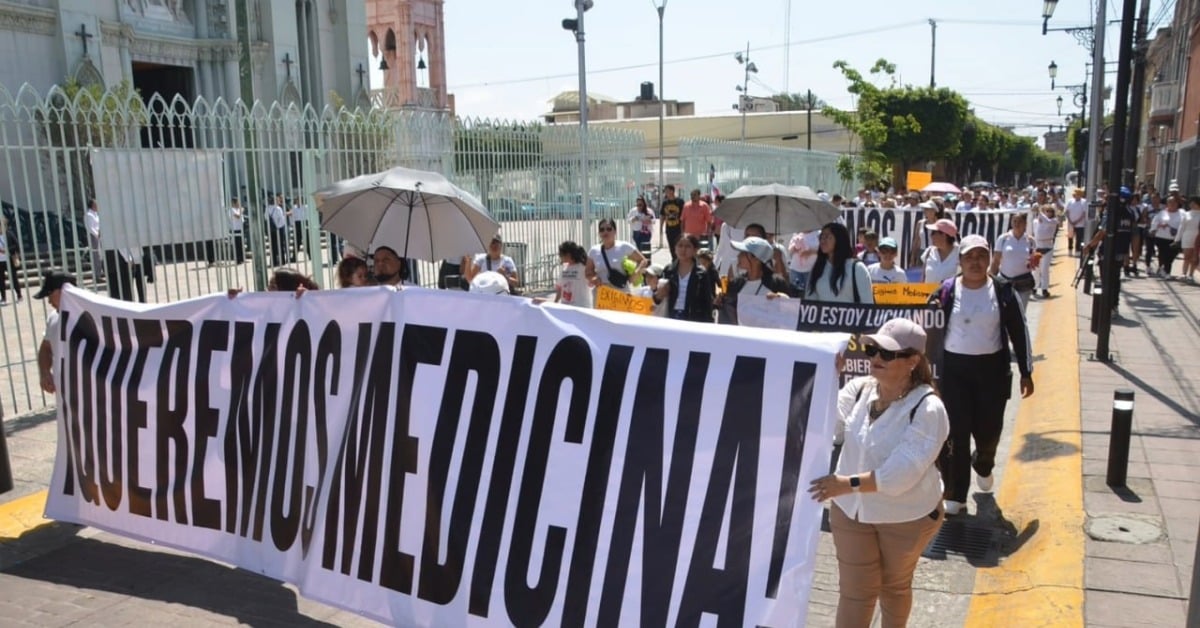Cancer patients, families and civil groups marched in León on August 10 demanding an end to shortages of chemotherapy drugs—a struggle echoed across Mexico . . .

Cancer patients, families and civil groups marched in León on August 10 demanding an end to shortages of chemotherapy drugs—a struggle echoed across Mexico . . .
